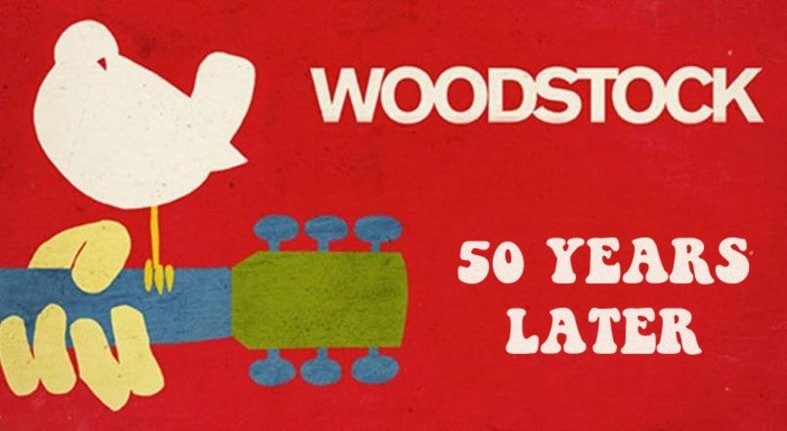Woodstock, August 1969, the world’s most iconic festival – remembered for its cultural significance, great music and message of ‘love and unity’. A look into its history, however, will also reveal some less flattering sides. Woodstock’s later reincarnations had their shortcomings and ‘Woodstock 50’ never saw the light of day.
So what about the ‘Three days of nothing but Peace & Love’?
If you look at it on paper, one could say that the festival certainly had its … issues. Woodstock lacked in basic food and water supplies, sanitary facilities and medical resources, transportation logistics and many other areas of organisation.
They had one toilet for every 833 people with people opting to take their business wherever they saw fit. No blue portable loos, no food trucks selling gluten free Halloumi fries, “Glamping” tents or V.I.P passes … Instead, lots of mud, spiked drinks and tripping teenagers.
According to one nurse, burned eyeballs were actually a thing at the festival. They appeared to have resulted from kids on LSD who would lie down on their backs and just stare at the sun.
Not even the artists and stage staff had a particularly easy job to keep the show running. Delays due to bad weather and a plethora of technical problems caused some artists like the Grateful Dead to call their show the worst performance they ever delivered.
If things like that happened today you could expect „money back“ claims, lawsuits and calls for health and safety galore. Not to mention all the cases of, should we say, public indecency.
Then there is the fact that Woodstock certainly wasn’t the first, the only or even the biggest festival of its kind. Bob Dylan left the States only a day before Woodstock to play the Isle of Wight festival, which had an estimated 600 000 visitors, surpassing the attendance of Woodstock by 200 000.
Last but not least, the artist line up, while excellent, lacked the most popular acts of that time, like the Beatles, the Rolling Stones, Led Zeppelin or Dylan.

Then why is Woodstock viewed as the “Most important Music Festival of All Time”?
Well, we haven’t been there, weren’t even born back then. All we have is second-hand information – from reading stories and interviews, from listening to its music and watching the documentary, and from talking to people who experienced this event from their personal viewpoint.
There is no denying that there was something special happening between the artists and the audience. A kind of „we’re in this together“ thing. People seemed to view it as a manifest of “their” cultural movement.
Considering all that, it looks to us like a victory of imagination over reality.
Obviously, enough people wanted Woodstock to be an example of love, understanding and peaceful togetherness, so it became one. Despite all the problems, or maybe just because of them.
It was an adventure. There had been obstacles to overcome, problems to solve and statements to make … “Woodstock” as a whole became the statement. Against the Vietnam War, the establishment, intolerance, … and for “peace and love” (we only mention the constructive ones here). In that case, less seemed to be more. A lack of organisation led to people organising themselves and even having a good time doing so.
When we wrote Once Upon A Time we took all the positive and inspiring aspects we feel about that time, or even just shamelessly implied them, as did many others before us. We are in good company there.
If Woodstock wasn’t about honest music, brotherhood, peace & love, it at least could or maybe even should have been so.
What do you think? Did you attend, do you know people who did … or have you experienced it as a contemporary witness from somewhere else in the world?
Are people just romanticising a failed social experiment or has it been this example of peace and solidarity we should all learn from? How did you see it back then and how do you view it now? And lastly, we are curious about what people of our generation think about the Woodstock phenomenon.
We’re looking forward to reading from all of you in the comments below!


